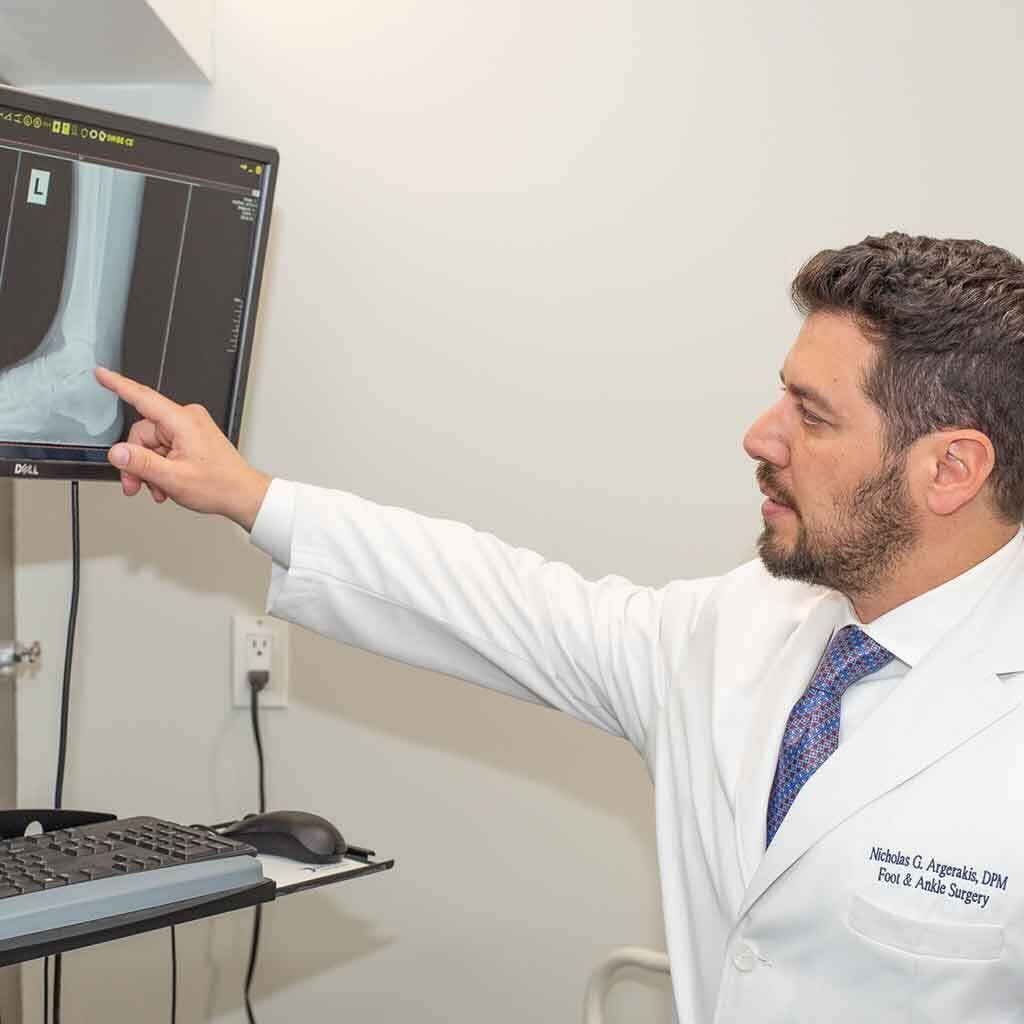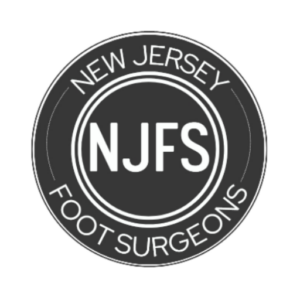Introduction
Metatarsalgia, commonly known as ball of foot pain, can disrupt your daily activities and limit mobility. Whether you’re struggling with sharp, burning sensations or discomfort during walking, this condition can significantly affect your quality of life. At New Jersey Foot Surgeons, we understand the importance of addressing foot pain quickly and effectively.
Led by Dr. Nick Argerakis, a renowned foot and ankle specialist with over 15 years of experience, our team offers personalized, expert care to help you regain your mobility. Dr. Argerakis is board-certified in foot surgery and uses the latest diagnostic and treatment techniques to provide relief and promote long-term foot health.
Key Takeaways:
- Metatarsalgia (ball of foot pain) can severely impact mobility and daily tasks, but effective treatment can provide relief.
- Common causes include overuse, improper footwear, excess weight, and medical conditions like arthritis.
- Symptoms often involve sharp pain, swelling, and a burning sensation in the ball of the foot.
- Risk factors include high-impact activities, foot shape, and unsupportive footwear.
- Treatment options range from rest and ice to custom orthotics and, in severe cases, surgery.
- Preventative measures like wearing supportive shoes and maintaining a healthy weight can reduce risk.
Understanding Metatarsalgia (Ball of Foot Pain)
Metatarsalgia, commonly known as ball of foot pain, is a condition that significantly impacts mobility and daily activities. The discomfort can make simple tasks like walking or standing unbearable. However, effective treatment can help you regain your active lifestyle. Seeking professional care ensures that you get relief from foot pain and prevent future complications.
Causes of Metatarsalgia
Several factors contribute to the development of metatarsalgia, including:
- Overuse: High-impact activities like running, jumping, and prolonged standing put excessive pressure on the metatarsal bones.
- Foot Structure: Individuals with high arches or a longer second toe may experience uneven weight distribution, leading to pain.
- Improper Footwear: Wearing unsupportive shoes, such as high heels or tight-fitting footwear, increases stress on the ball of the foot.
- Excess Weight: Carrying extra weight adds pressure to the forefoot, exacerbating pain and inflammation.
- Medical Conditions: Conditions such as arthritis, diabetes, and gout can alter foot structure and contribute to metatarsalgia.
- Aging: The natural fat padding in the foot diminishes over time, reducing cushioning and increasing discomfort.
Symptoms of Metatarsalgia
Recognizing symptoms early can help in effective treatment. Common symptoms include:
- Sharp, aching, or burning pain in the ball of the foot
- Increased pain with activity and relief during rest
- Tingling or numbness in the toes
- A sensation of having a small pebble inside the shoe
- Swelling and inflammation in the forefoot

Risk Factors for Metatarsalgia
While metatarsalgia can affect anyone, certain factors increase the likelihood of developing this condition:
- High-Impact Activities: Sports such as basketball, running, and tennis put repeated stress on the forefoot.
- Foot Shape and Structure: Individuals with high arches, flat feet, or an uneven toe length distribution are more prone to pain.
- Unsupportive Footwear: Shoes with inadequate support or cushioning contribute to excessive pressure on the foot.
- Excess Body Weight: The heavier you are, the more stress your feet endure, leading to pain and inflammation.
- Aging: Over time, the foot’s protective padding wears down, increasing discomfort.
- Medical Conditions: Issues like arthritis, gout, and Morton’s neuroma increase the risk of developing metatarsalgia.
- Previous Foot Injuries: A history of fractures or sprains can weaken the foot and lead to chronic pain.
- Improper Training Techniques: Sudden increases in exercise intensity without proper conditioning can lead to foot injuries.
Diagnosis of Metatarsalgia
At New Jersey Foot Surgeons, we conduct a thorough evaluation to diagnose metatarsalgia accurately. Our diagnostic approach includes:
- Physical Examination: Checking for tenderness, swelling, and abnormalities in foot structure.
- Imaging Tests: X-rays, MRIs, or ultrasounds help rule out fractures, neuromas, or arthritis.
- Gait Analysis: Observing how you walk to detect irregularities in weight distribution and movement patterns.

Treatment Options for Metatarsalgia
We offer a variety of treatment options tailored to the severity of your condition:
Conservative Treatments
- Rest and Ice Therapy: Reducing physical activity and applying ice packs can alleviate pain and swelling.
- Proper Footwear: Wearing supportive shoes with cushioning and a roomy toe box minimizes stress on the foot.
- Orthotic Devices: Custom-made insoles help redistribute pressure and provide additional support.
- Pain Management: Over-the-counter pain relievers, including NSAIDs, can reduce inflammation and discomfort.
Advanced Treatments
If conservative methods fail to provide relief, we may recommend:
- Corticosteroid Injections: These injections help reduce inflammation and provide significant pain relief.
- Surgical Intervention: In severe cases, surgery may be required to correct foot deformities or remove inflamed tissue. Our expert surgeons use minimally invasive techniques for faster recovery and optimal results.
Why Choose New Jersey Foot Surgeons?
At New Jersey Foot Surgeons, we specialize in diagnosing and treating metatarsalgia with the most advanced and effective techniques. Our team is dedicated to providing personalized care tailored to your unique needs. Whether you require conservative treatment or advanced interventions, we are committed to helping you achieve a pain-free lifestyle.
Take the First Step Toward Pain Relief
Metatarsalgia can significantly impact your daily life, but you don’t have to endure the pain. Call (732)-320-9173 today to schedule a consultation with our specialists. Let us help you regain mobility and comfort with expert foot care. Don’t let foot pain hold you back—reach out to us and start your journey toward a pain-free life.


